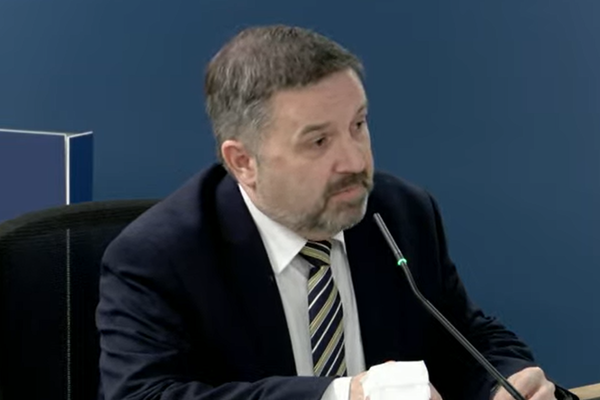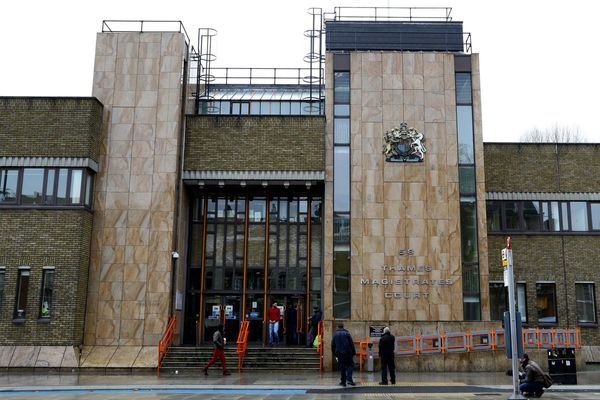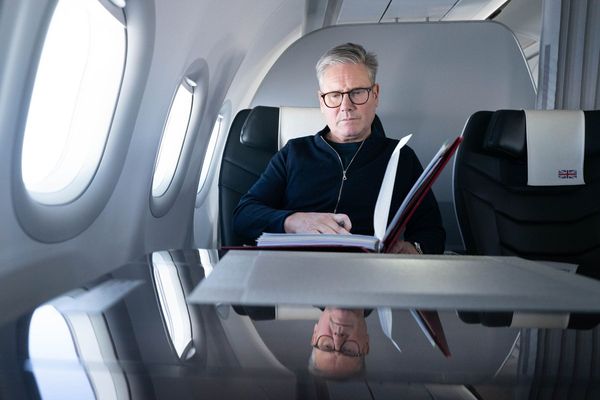While companies as diverse as Apple (AAPL), Volkswagen (VWAGY) and Exxon (XOM) have responded to Russia's invasion of Ukraine by pulling their business out of the country, a number of others are making an active choice to stay put.
After almost eight years of stalled conflict over separatist-controlled eastern regions and the annexed island Crimea, Russian President Vladimir Putin launched a full-scale attack on its neighbor country 12 days ago. As Ukraine fights back, entire cities have been turned to rubble and over 1 million Ukrainians became refugees while fleeing to neighboring countries. Currently, at over a thousand, Ukrainian civilian deaths are also rising fast.
Which Companies Have Left Russia?
While Western governments responded by hitting Russia with sanctions and cutting it off the international SWIFT banking system, big business responded by pulling out or severely limiting their business in the country. Apple, Netflix (NFLX), Volkswagen, Boeing (BA), ExxonMobil, Zara, H&M (HMRZF) , and Ikea are just some of the names that have closed operations in the country since the start of the war.
Going against competitors like H&M and Zara, the parent company that owns fast fashion brand Uniqlo has made the choice to keep all 50 of its stores across Russia open.
"Clothing is a necessity of life," Fast Retailing CEO Tadashi Yanai told Japanese outlet Nikkei last week. "The people of Russia have the same right to live as we do."
As the debate rages on whether these types of mass closures are unfair to everyday citizens who played no part in the war but were suddenly thrust into poverty with lost jobs, many fast food companies have also chosen to remain.
Which Companies Stayed In Russia?
While they have not been as vocal as Fast Retailing, McDonald's (MCD), YuM!Brands (YUM)-owned KFC and Starbucks (SBUX) are all currently still operating in the country — and attracting increasing calls for boycott from both Ukrainians and the global community.
As of Monday afternoon, Coca-Cola (KO), Pepsi (PEP) and Mondelez International (MDLZ) (the maker of everything from Oreos and Cadbury chocolate to Triscuits) were all also selling products in the country. Some Ukrainian supermarkets have even pulled these companies' products from their shelves over their lack of action.
"Coke AND Pepsi are still doing business in Russia," lawyer Tristan Snell wrote on Twitter (TWTR). "I won't buy ANY of either company's products until they halt operations in Russia and stop supporting Putin's war crimes in Ukraine."
Will Boycotts Affect Companies Which Do Business in Russia?
Fast Retailing's stance of clothing being a life necessity is largely the exception. Most of the global companies that currently remain in Russia have not been commenting on the reasons for their decision even if a similar argument could be made for certain food products.
In contrast to companies like Netflix and TikTok's blocking Russian users out entirely, Spotify (SPOT) chose to close its Moscow office but not block access to its content in order to give Russians an alternative to the Kremlin position that the war is just a "special operation" to protect ethnic Russians in Ukraine.
"Our first priority over the past week has been the safety of our employees and to ensure that Spotify continues to serve as an important source of global and regional news at a time when access to information is more important than ever," the company said in a statement last week.
While this global response has sunk the ruble and shattered Russia's economy, it has not had the desired effect of Putin pulling troops out of the country. It is also still too early to see how calls for boycott will affect companies that are choosing to remain. While some believe the calls will die down, others believe that the choice to remain could have a real effect on the bottom line.
"All I know is there’s turmoil within boards," Yale School of Management professor Jeffrey Sonnenfeld told the Financial Times.







